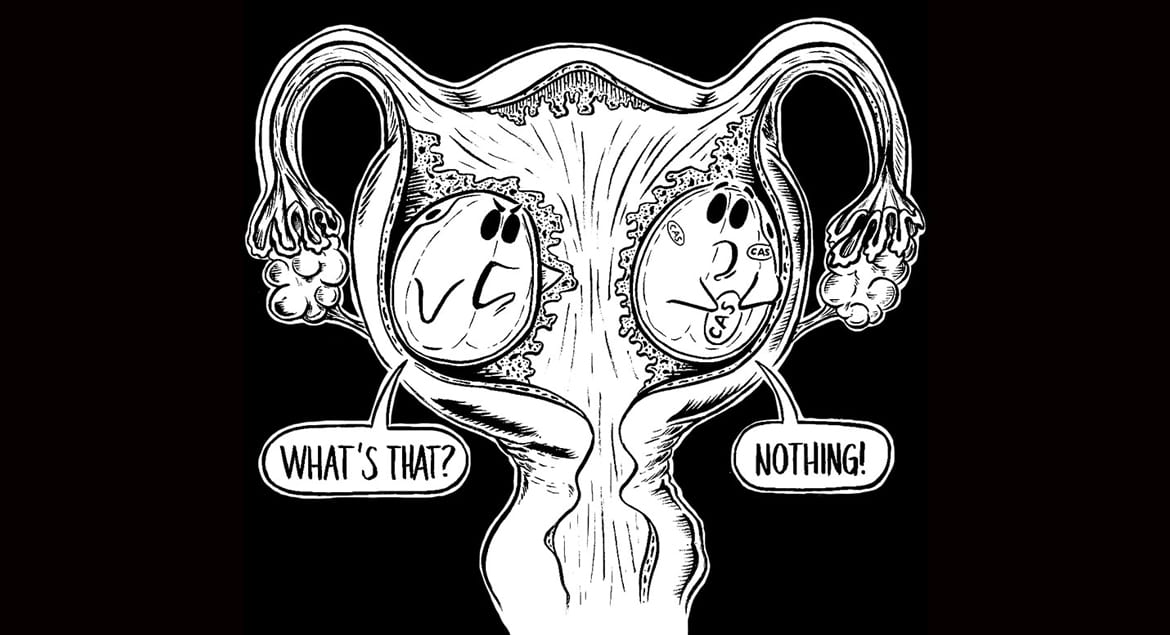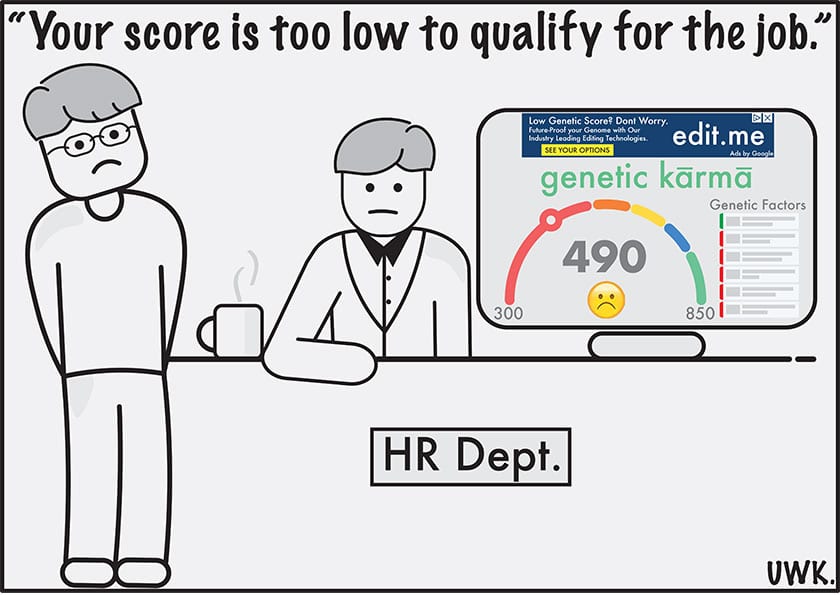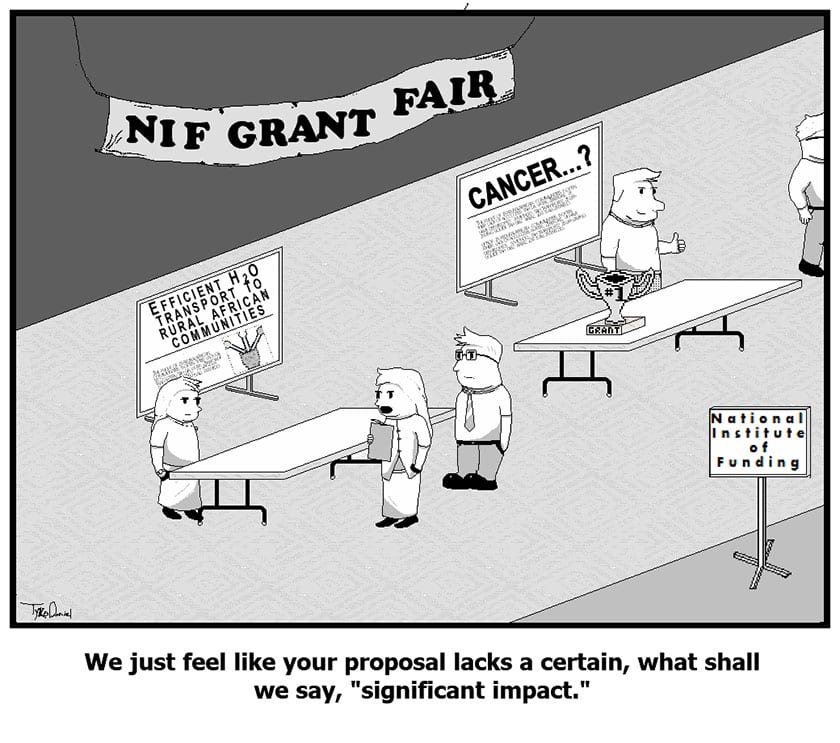Five prizes were awarded in the second annual Morgridge Ethics Cartooning Competition, a contest that invites participants to make a cartoon on any ethical issue arising in or from biomedical research. The competition drew 65 entrants from more than 32 different departments and programs at the University of Wisconsin–Madison and affiliated research institutions.
A panel of three judges applied the following criteria to the competition: depiction and analysis of a research ethics issue, humor, and artistry. After public voting, the following winners were selected:
- First Prize: Rush Dhillon, Wisconsin Institute for Discovery and department of biomolecular chemistry at UW–Madison
- Second Prize: Umair Khan, Morgridge Institute for Research and department of integrative biology at UW–Madison
- Third Prize: Ellen Arena, LOCI at UW–Madison
- Honorable Mentions: Scott Swanson, Morgridge Institute for Research; Allwin McDonald, department of chemistry at UW–Madison
Rush Dhillon, a comparative biologist working with the John Denu Lab at the Wisconsin Institute for Discovery (WID), took the top prize.
Dhillon started cartooning as a child, but the pastime faded over the years as he built up his career in science. He rediscovered his love for the art during his time working at WID—a research institute located in the Discovery Building on UW–Madison’s campus—and it’s since become an integral part of his career.
A few years ago, Dhillon started participating in weekly drawing jams held in the Discovery Building Image Lab by an (at the time) MFA grad student Angela Richardson, and then slowly began incorporating his original science drawings into conference posters and presentations.
“I found cartooning to be a very strong way to connect with people, and participating in the weekly drawing sessions helped me incorporate my science into art,” Dhillon says. “I feel strongly about the importance of science communication. Cartooning is one effective tool I have, and it’s something I absolutely love doing.”
The cartoon Dhillon submitted for the contest depicts twin embryos, one of which is furtively hiding Cas proteins within it, implying that it has been gene edited using the CRISPR technique. This refers to the scientific bombshell that broke in late 2018 when a Chinese scientist announced the creation of gene-edited twins.
Dhillon wanted the cartoon’s message to be twofold: showcase the literal nature of what happened, gene-editing of human embryos, as well as highlight the secrecy that surrounded the scientific work and methods.
“At the time the news broke, we knew nothing,” Dhillon says. “The scientists didn’t release a paper, they weren’t revealing the science or methods behind it. And the scientific community was demanding answers. [The scientific community] hadn’t clearly defined the ethics on this situation, so moving forward without a framework made the work unethical, in a sense.”
The Morgridge Ethics Cartooning Competition encourages scientists to shed light on timely or recurring issues that arise in scientific research. The top five winning cartoons are depicted below, and we thank all the contest entrants for their creative works that addressed important ethical issues in biomedical research.

First Prize
Rush Dhillon
© 2018 Rush Dhillon

Second Prize
Umair Khan
© 2018 Umair Khan

Third Prize
Ellen Arena
© 2018 Ellen Arena
Honorable Mention

Scott Swanson
© 2018 Scott Swanson

Honorable Mention
Allwin McDonald
© 2018 Allwin McDonald





